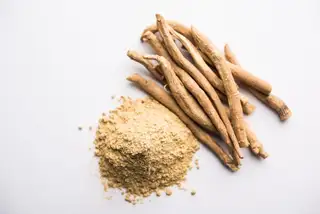
What Foods Increase Risk of Kidney Stones
Kidney stones are a common and often painful health condition that can significantly impact one's quality of life. Understanding the role of diet in the formation of kidney stones is crucial for prevention. In this comprehensive article, we will explore the foods that are known to increase the risk of developing kidney stones and the underlying mechanisms behind their influence.
Understanding Kidney Stones
Before delving into the specific foods, it's essential to have a basic understanding of kidney stones. Kidney stones are hard deposits that form in the kidneys when certain substances in the urine become concentrated and crystallize. The most common types of kidney stones include calcium oxalate, calcium phosphate, uric acid, struvite, and cystine stones.
The formation of kidney stones can cause intense pain, especially when they move through the urinary tract. Repeated occurrences of kidney stones can lead to kidney damage and other complications.
Foods High in Oxalates
Oxalate is a compound found in many foods and is a significant contributor to the formation of calcium oxalate kidney stones. Some of the foods rich in oxalates include spinach, rhubarb, beets, chocolate, nuts (such as almonds and peanuts), and tea.
When consumed in excessive amounts, oxalates can bind with calcium in the kidneys and form stones. It's important to note that not everyone who eats oxalate-rich foods will develop kidney stones, as other factors such as fluid intake and individual metabolism also play a role.
High-Sodium Foods
A diet high in sodium can increase the risk of kidney stones. Processed foods like canned soups, packaged snacks, and fast food are often laden with sodium. Excessive sodium intake leads to increased calcium excretion in the urine, which can promote the formation of calcium-based kidney stones.
In addition, high sodium levels can cause the body to retain water, reducing urine volume and increasing the concentration of substances that can form stones.
Animal Protein-Rich Foods
Consuming large amounts of animal protein, such as red meat, poultry, and seafood, can elevate the risk of kidney stones. When the body metabolizes animal protein, it produces substances like uric acid and sulfate. Uric acid can form stones on its own or contribute to the formation of calcium stones.
Moreover, a diet high in animal protein can make the urine more acidic, creating an environment conducive to stone formation.
Sugar-Sweetened Beverages
Regular consumption of sugar-sweetened beverages, including sodas and fruit juices with added sugar, has been linked to an increased risk of kidney stones. These beverages can cause spikes in blood sugar and insulin levels, which may affect the body's metabolism of calcium and other substances involved in stone formation.
In addition, they often contribute to excessive calorie intake and weight gain, which are additional risk factors for kidney stone development.
Foods with High Phosphorus Content
Some foods, such as dairy products and processed meats, are high in phosphorus. While phosphorus is an essential nutrient, excessive intake can imbalance the calcium-phosphorus ratio in the body, increasing the risk of calcium phosphate stones.
The Importance of Fluid Intake
It's not just about the foods we eat but also how much fluid we consume. Inadequate fluid intake is a major risk factor for kidney stone formation. When we don't drink enough water, the urine becomes concentrated, allowing minerals and substances to crystallize more easily.
Staying well-hydrated by drinking plenty of water throughout the day helps dilute the urine and flush out potential stone-forming substances.
Interactions and Combinations
Often, the risk of kidney stones is not solely attributed to one specific food but rather the combination and interaction of multiple dietary factors. For example, a diet high in both oxalates and sodium, or a combination of excessive animal protein and low fluid intake, can significantly increase the likelihood of stone formation.
Individual Variability
It's important to recognize that individual responses to these foods can vary. Some people may be more prone to developing kidney stones based on their genetic makeup, underlying health conditions, or previous history of stone formation.
Prevention and Dietary Recommendations
To reduce the risk of kidney stones, a balanced diet is key. This includes moderation in the consumption of high-risk foods mentioned above. Increase the intake of fruits, vegetables, whole grains, and low-fat dairy products.
Emphasize a diet rich in fiber and limit the intake of processed and high-sodium foods. Drink an adequate amount of water, aiming for at least 8-10 glasses per day.
If you have a history of kidney stones or are at a higher risk due to underlying conditions, it's advisable to consult a healthcare provider or a registered dietitian for personalized dietary advice.
Conclusion
Identifying the foods that increase the risk of kidney stones is an important step in preventing this painful condition. By making informed dietary choices, maintaining proper fluid intake, and being aware of individual susceptibilities, we can take proactive measures to safeguard our kidney health and reduce the likelihood of experiencing the discomfort and complications associated with kidney stones. Remember, a healthy diet is not only a preventive measure but also an investment in overall well-being.




